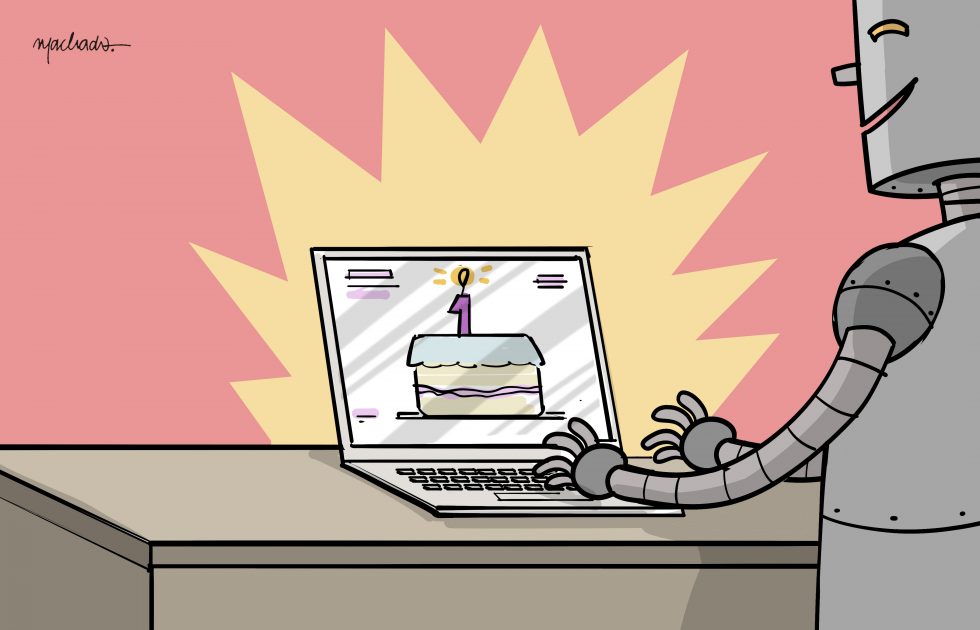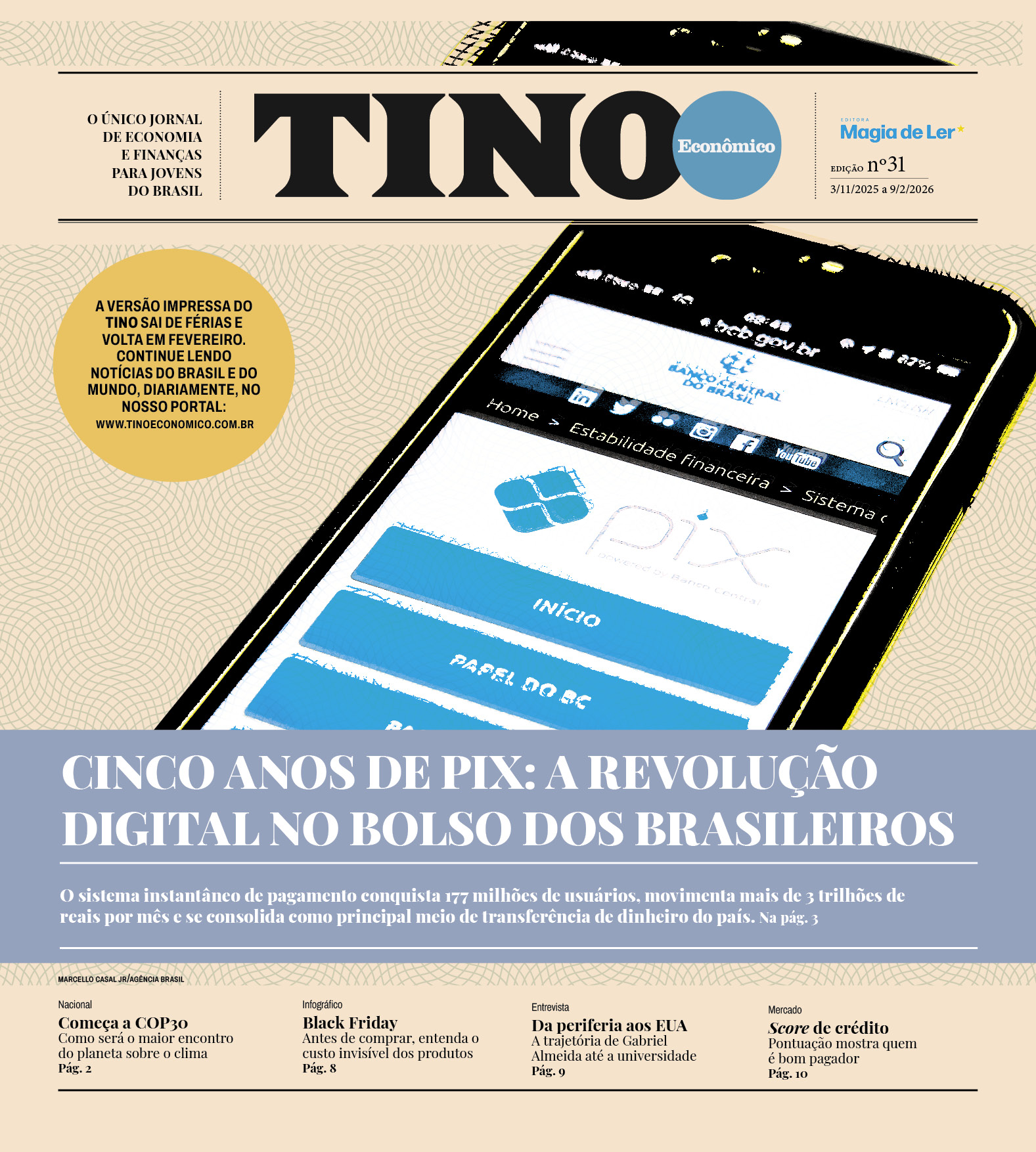
One year ago, everyone was beginning to come into contact with a technology that was already present in their daily routine, even if only discretely: artificial intelligence (AI). ChatGPT, responsible for revolutionizing the way we interact with AI and its innovations, celebrates its first birthday on November 30th 2023.
With ChatGPT, AI went from having a supporting role to being the lead actor in the lives of 1.49 billion monthly users.
“AI has been around for longer than only the last year. But it was transparent, there was no direct interaction”, states Alexandre Mello Ferreira, researcher at the Universidade Estadual de Campinas (Unicamp).
According to academics, these language models were already known. In the day to day lives of the general public, AI appeared, for example, in the recommendation of films and series on streaming platforms or on news on social networks. “The breakthrough with ChatGTP was to put this in a website format which anyone could use. This was a revolution”, says Ferreira.
| ChatGPT numbers Only five days after it was launched, ChatGPT surpassed one million users. 1.49 billion accesses in September 2023. 7 minutes is the average time people spend on the site. 57.2% of users are men. Brazil represents 3.78% of accesses to the site. |
The developments
Over the last months, ChatGPT has been updated and now has a paid version that offers even more tools, such as research and the generation of images. But, in addition to the platform’s innovations, the developments in the sector throughout this period were significant.
According to research carried out by McKinsey consultancy, generative AI (which includes bots) can make between 2.6 trillion to 4.4 trillion dollars (around 13.1 to 22 trillion reais) circulate per year in the world economy. “Science depends a lot on investments and, with the popularization of ChatGPT, the values for this area have increased. Now we have more people developing the sector much faster”, highlights Ferreira.
The problems
Like every revolution, there is a period of adaptation. “Society is not able to learn and change with the same speed as technology”, says the specialist. As it is a resource that is accessible to everyone, it can be used for harmful purposes such as the creation of fake news and false images.
This is why, specialists are concerned about the quality of the data supplied, as ChatGPT is capable of reproducing everything that is in its database, without distinguishing prejudices or other biases.
The expectation, however, is for the technology to continue evolving. “We will still face a long path of discoveries which is impossible to predict. In 2017, when transformers (an automatic translation software model with other numerous innovative applications) appeared, nobody imagined that we were close to discovering a revolutionary mechanism such as ChatGPT”, concludes the researcher from Unicamp.
Competition
With the success of ChatGPT, other similar services have emerged:
Bing Chat: created by Microsoft, the chatbot uses the same language model as ChatGPT in its more updated version and it is free.
Bard: the Google chatbot accesses information on the research platform and is therefore always updated.
Meta AI: still running as a pilot program, Meta’s bot promises to integrate social networks, talk to users and generate images.
Chatsonic: developed by Writesonic, it uses Google’s database, presents the sources of the information given and has voice command.
| What is ChatGPT? It is a chatbot capable of interacting with humans created by OpenAI, a company working with research and the implementation of artificial intelligence. Using data, it is able to answer questions, create a story, admit mistakes and solve mathematical questions. Its free version has information up until January 2022. ChatGPT Plus, available to subscribers, offers advantages such as a faster response, photo uploads, updated information and voice command. |








